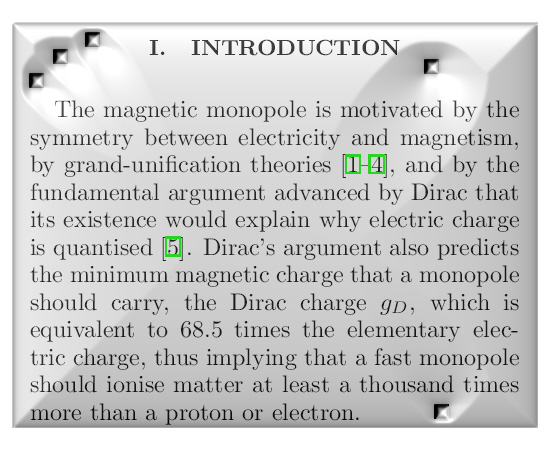It has to be remarked that the physics folks are very persistant to keep on trying to find the so called Dirac monopole. How this has come to be is still a miracle to me. After all if the electron has one electric charge and for the rest it is a magnetic dipole, it would look naturally to look for a particle that is a magnetic monopole and an electric dipole at the same time…
But I have never heard about such an investigation, it is only the Dirac magnetic monople and that’s it.
Here is a quote from sciencenews dot org:
If even a single magnetic monopole were detected, the discovery would rejigger the foundations of physics. The equations governing electricity and magnetism are mirror images of one another, but there’s one major difference between the two phenomena. Protons and electrons carry positive and negative electric charges, respectively, but no known particle has a magnetic charge. A magnetic monopole would be the first, and if one were discovered, electricity and magnetism would finally be on equal footing.
Source:
Magnets with a single pole are still giving physicists the slip
https://www.sciencenews.org/article/magnetic-monopoles-single-pole-physics
Comment on the quote: Because in my view I consider the electrons having one electrical charge and one of two magnetic charges, I think we have a nice equal footing of electricity and magnetism… (End of the comment.)
__________
Back to CERN and stuff. Last month it came out that the MoEDAL experiment has failed in the sense that no magnetic monopoles were observed. Here is a small screenshot from the preprint archive stuff:
 Comment: No idea what these people are talking about when they talk about 68.5 times the electric charge… Are they talking about electric charge or magnetic charge?
Comment: No idea what these people are talking about when they talk about 68.5 times the electric charge… Are they talking about electric charge or magnetic charge?
(End of comment)
Source of the content of the picture above:
https://arxiv.org/pdf/1712.09849.pdf
After a bit of searching I found back this beautiful video, coming from CERN, explaining how to find magnetic monopoles. It is clear they never ever studied the electron.
Yeah yeah my dear average CERN related human; what exactly is a magnetic monopole?
Does it have electric charge too and why should that be?
In my view where the electrons carry both electric and magnetic charge, a magnetic monopole with zero electric charge just does not exist.
__________
Ok, let me bring this post to an end by observing that at CERN they were not capable in the year 2017 of detecting the magnetic monopole as it should exist following the lines of thinking like Paul Dirac once did.
So that is a good thing because after thinking about four years about magnetism it would be horrible for me to find that at CERN they had a major discovery about magnetic monopoles…
Sorry CERN folks, your failure to find magnetic monopoles your way does not prove that electrons are indeed carrying magnetic charge. It just makes it a little bit more plausible that they do…
So my dear CERN folks, thanks for publishing your failure because for me it is another tiny quantum move into the direction of accepting the electron as it is.
__________
End of this post.